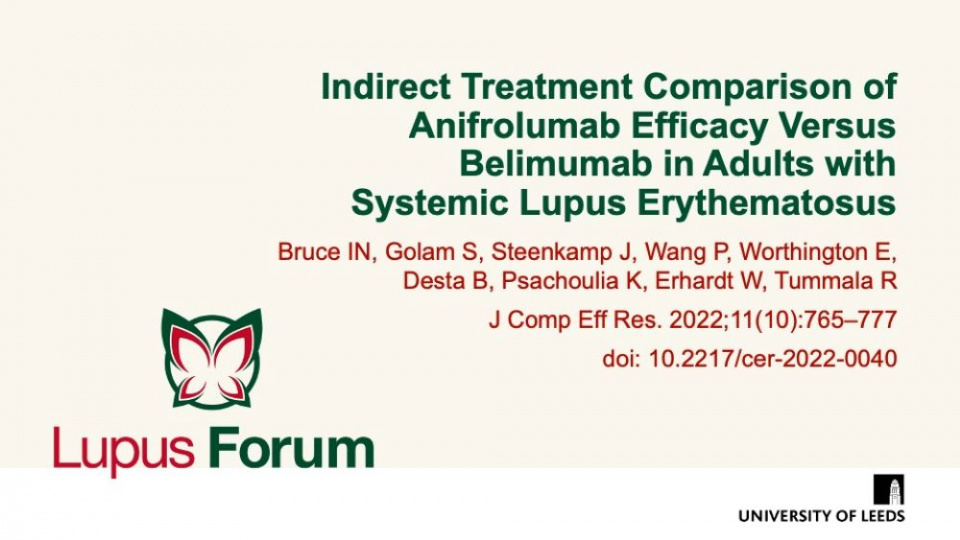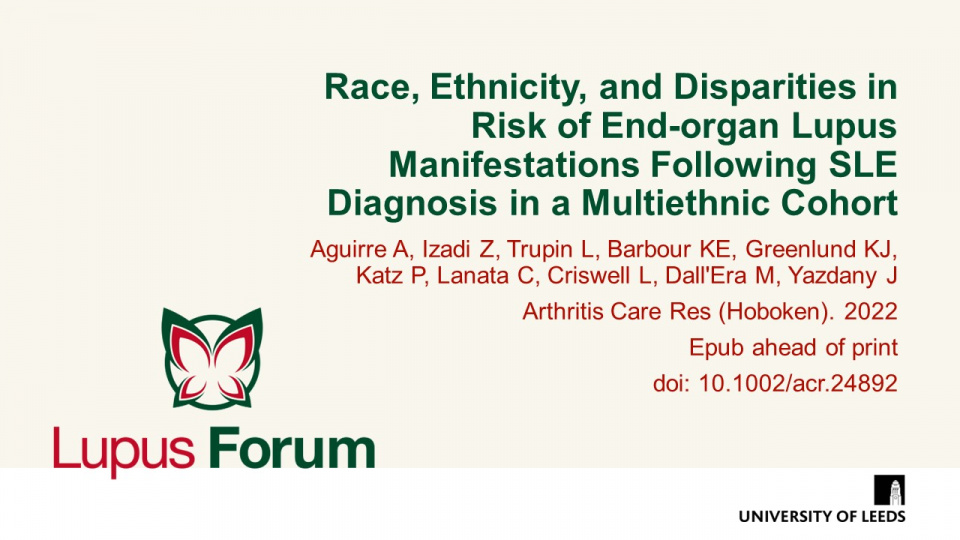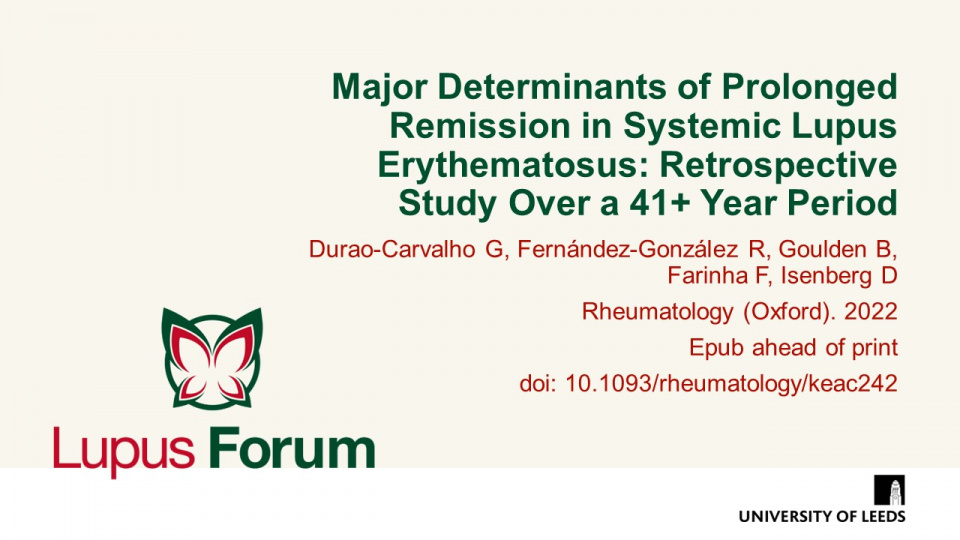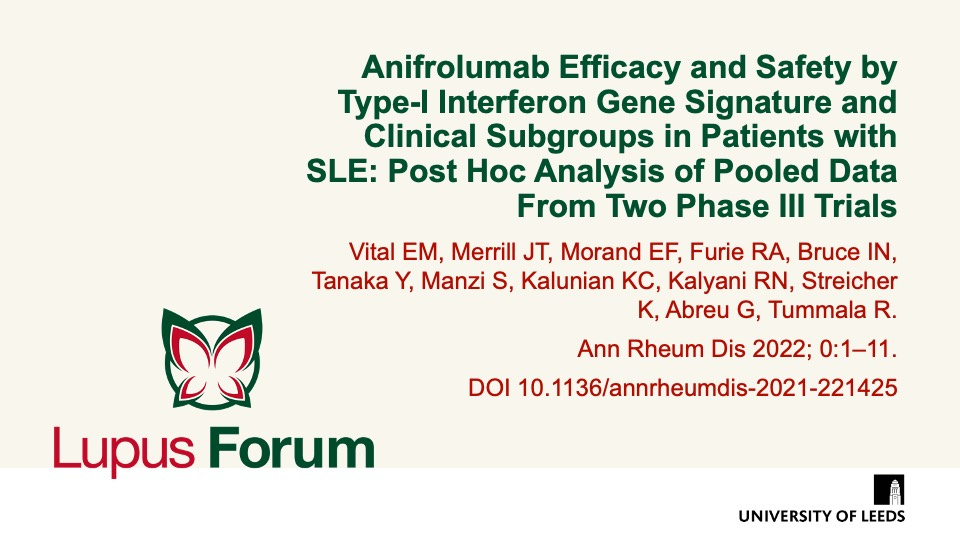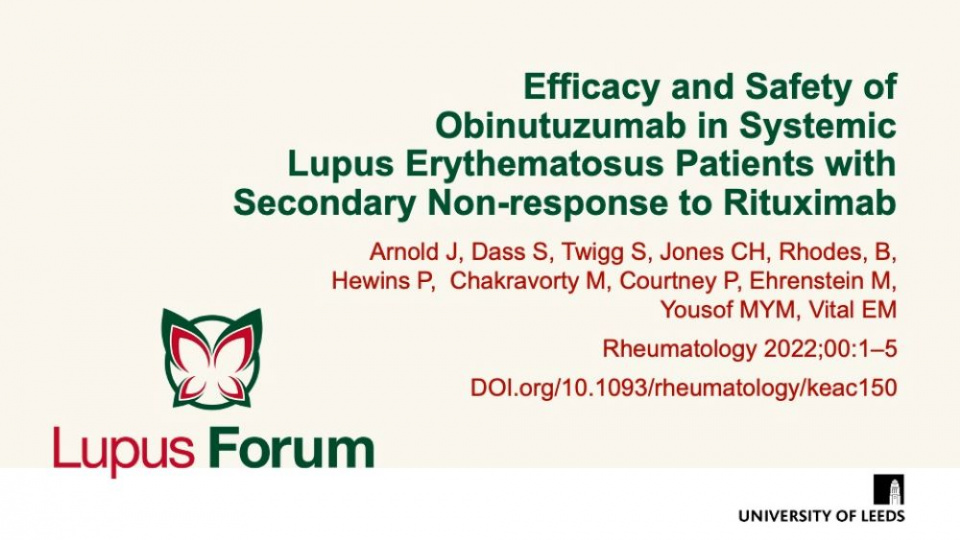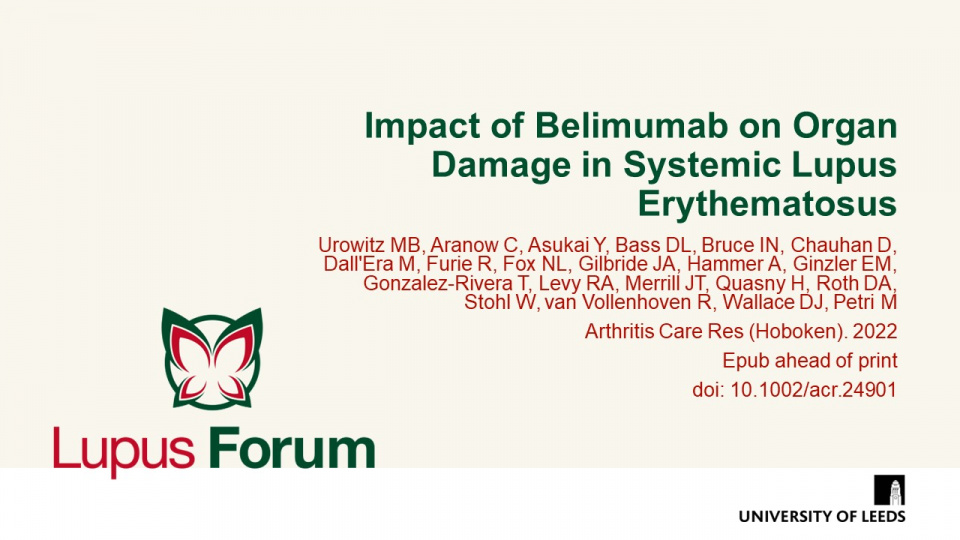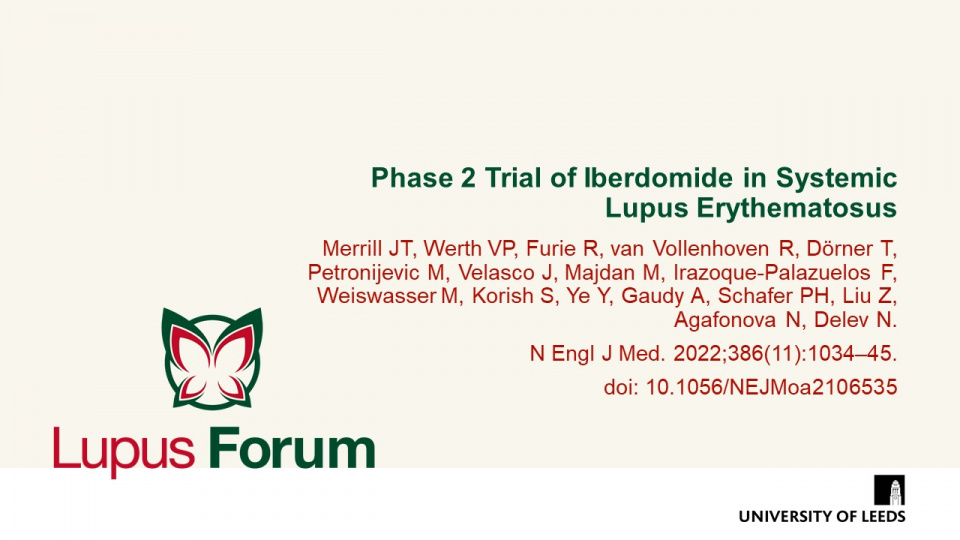Publications
Find coverage of the latest original articles on Lupus, focusing on those with data on therapeutic interventions and those that have clinical impact.
Indirect treatment comparison of anifrolumab efficacy versus belimumab in adults with systemic lupus erythematosus
J Comp Eff Res. 2022;11(10):765–777 doi: 10.2217/cer-2022-0040
Population-adjusted comparative study provides insights for decision makers and clinicians about the comparative efficacy of anifrolumab and belimumab in patients with moderate-to-severe systemic lupus erythematosus (SLE) who are receiving standard therapy.
In the absence of head-to-head comparisons, Bruce, et al. assessed the comparative efficacy of the two biological therapies currently approved in the EU and USA for the treatment of moderate-to-severe SLE (anifrolumab 300 mg and belimumab 10 mg/kg).
After adjusting for important cross-trial differences, their results showed that anifrolumab was associated with significantly greater treatment benefits than belimumab.
Keywords:
Race, Ethnicity, and Disparities in Risk of End-organ Lupus Manifestations Following SLE Diagnosis in a Multiethnic Cohort
Arthritis Care Res (Hoboken). 2022 Epub ahead of print doi: 10.1002/acr.24892
California Lupus Epidemiology Study (CLUES) finds heightened risks of developing renal, haematologic, and multiorgan disease following SLE diagnosis among Hispanic and Asian patients with SLE.
Keywords:
Major Determinants of Prolonged Remission in Systemic Lupus Erythematosus: Retrospective Study Over a 41+ Year Period
Rheumatology (Oxford). 2022 Epub ahead of print
Retrospective observational study over a 41-year period finds complete remission (CR) in SLE to be associated with Caucasian race, older age at diagnosis, absence of renal involvement and absence of antiphospholipid syndrome.
High Systemic Type I Interferon Activity Is Associated with Active Class III/IV Lupus Nephritis
The Journal of Rheumatology 2022; 49:388–97 DOI 10.3899/jrheum.210391
Iwamoto, et al. aimed to determine the association of serum IFN activity with subtypes of lupus nephritis. This study suggests that systemic high type I IFN in SLE is involved in the pathogenesis of severe class III/IV LN and contributes to severe kidney involvement in European-American patients with SLE. However, this effect was independent of anti‑dsDNA antibody status and complement levels. Expression of type I IFN was not found to be clearly related to plasmacytoid dendritic cell infiltration, although it did directly stimulate podocytes to induce chemokines and molecules related to podocyte injury.
Anifrolumab efficacy and safety by type I interferon gene signature and clinical subgroups in patients with SLE: post hoc analysis of pooled data from two phase III trials
Ann Rheum Dis. 2022; 0:1–11. doi: 10.1136/annrheumdis-2021-221425
IFN-I signalling plays a key role in SLE pathogenesis, and anifrolumab has demonstrated inhibitory effects on IFN-I signalling in patients with SLE. Vital, et al. characterised efficacy and safety of anifrolumab in patients with moderate-to-severe SLE based on interferon gene signature, demographic and clinical subgroups using data pooled from the Phase III TULIP-1 and -2 trials.
Efficacy and Safety of Obinutuzumab in Systemic Lupus Erythematosus Patients with Secondary Non-response to Rituximab
Rheumatology 2022;00:1–5 DOI.org/10.1093/rheumatology/keac150
Arnold, et al. present the first case series reporting the efficacy and safety of obinutuzumab in patients with treatment refractory SLE. The results indicate that, for this group of patients with limited treatment approaches, obinutuzumab could be a potential option.
Keywords:
Impact of belimumab on organ damage in systemic lupus erythematosus
Arthritis Care Res (Hoboken). 2022 Epub ahead of print doi: 10.1002/acr.24901
Review of clinical trial and real-world data on the effects of belimumab on organ damage in adult patients with SLE shows that belimumab reduces key drivers of organ damage, decreases organ damage progression and, in those with lupus nephritis (LN), decreases renal-related events.
Keywords:
Biological impact of iberdomide in patients with active systemic lupus erythematosus
doi: 10.1136/annrheumdis-2022-222212
Phase 2b study evaluating the pharmacodynamics and pharmacokinetics of oral iberdomide in patients with active SLE demonstrates that iberdomide significantly improves lupus disease activity and reduces hallmarks of the immunopathogenesis of SLE.
Keywords:
Phase 2 Trial of Iberdomide in Systemic Lupus Erythematosus
Kidney Int Rep. 2021;7(3):516-525 doi: 10.1056/NEJMoa2106535
This Phase 2 trial evaluated iberdomide in patients with moderate-to-severe systemic lupus erythematosus (SLE).
Long-Term Results of Triple Immunosuppression With Tacrolimus Added to Mycophenolate and Corticosteroids in the Treatment of Lupus Nephritis
Kidney Int Rep. 2021;7(3):516–25
Analysis of 22 patients with lupus nephritis (LN) demonstrates that triple immunosuppression with the addition of tacrolimus to mycophenolate and prednisolone results in further proteinuria reduction.


